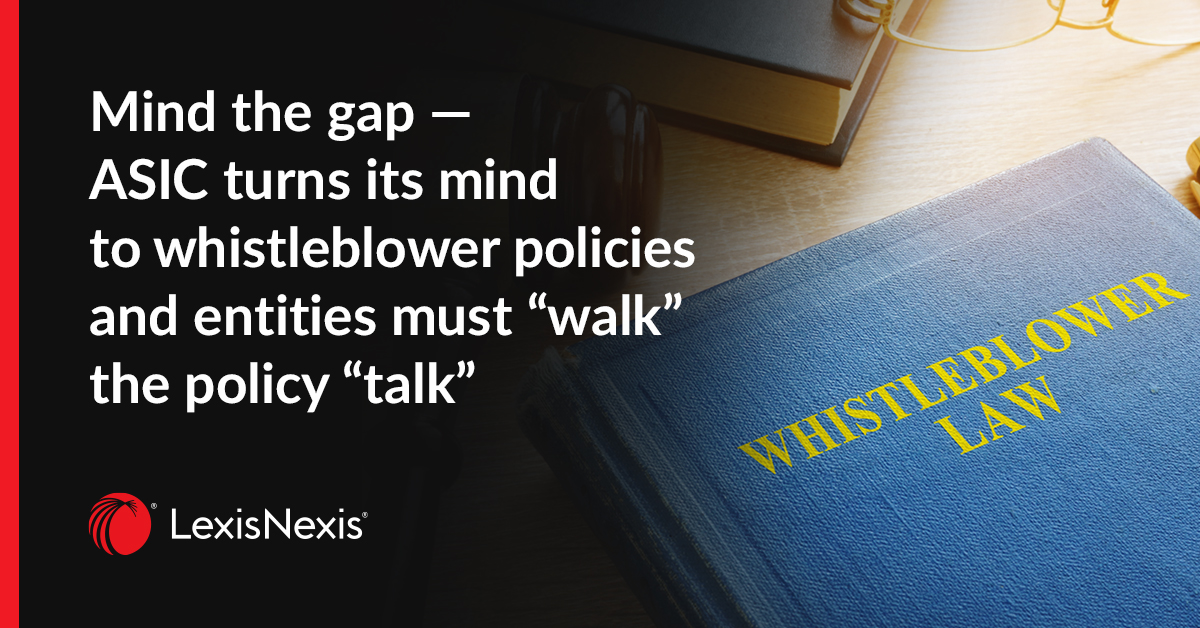
Why knowing how to monitor state and federal legislation is critical
19 August 2022 12:00
Antoaneta Dimitrova, Head of Current Awareness at LexisNexis®
Thousands of measures are proposed across Australia annually, and hundreds end up being legislated, ranging from relatively minor, to wide-ranging policy that can have major social, economic, or industrial significance. This was the case even during the Covid-19 pandemic lockdowns when Parliaments across the country had risen indefinitely.
Proposed legislation seldom gets front-page treatment, but it can have a significant impact on businesses and organizations. The public and private costs of complying with all the Covid-19 related regulations for example, even if temporary, touched every sector of the economy as well as life as we know it. Enacted measures - temporary or permanent - include provisions for substantial non-compliance penalties, on top of indirect non-compliance costs such as lost productivity and missed business opportunities. As the adage goes, compliance is expensive, but non-compliance can be even more expensive.
Monitoring large volumes of legislation is never easy, especially in Australia, with multiple jurisdictions, however it is essential for a variety of business professionals to stay on top of emerging regulation relevant to their areas of practice, or industry.
| Legislation and Regulation 2020 | ||||||||||
|---|---|---|---|---|---|---|---|---|---|---|
| Cth | ACT | NSW | NT | QLD | SA | TAS | VIC | WA | Totals | |
| Acts | 154 | 51 | 44 | 28 | 39 | 45 | 46 | 47 | 48 | 502 |
| Regs | 1718 | 1215 | 571 | 34 | 267 | 324 | 101 | 150 | 361 | 4741 |
| Totals | 1872 | 1266 | 615 | 62 | 306 | 369 | 147 | 197 | 409 | 5243 |
| Legislation and Regulation 2021 | ||||||||||
|---|---|---|---|---|---|---|---|---|---|---|
| Cth | ACT | NSW | NT | QLD | SA | TAS | VIC | WA | Totals | |
| Acts | 142 | 34 | 47 | 29 | 25 | 58 | 32 | 56 | 30 | 453 |
| Regs | 1915 | 1134 | 806 | 24 | 192 | 198 | 135 | 177 | 223 | 4804 |
| Totals | 2057 | 1168 | 853 | 53 | 217 | 256 | 167 | 233 | 253 | 5257 |
- Legislation can often change without sufficient notice, and even if reported in the news, coverage may be incomplete and skewed toward a particular angle.
- The lull of the open web, and free content alerts can often be misleading. The truth is, search engines do not index all the news content on the web, and alerts do not capture the scope and the detail required for day-to-day to business decisions.
- Similarly, the open web would not capture the sheer volume of information released by government publishers daily, or account for some that may be suppressed, or simply stalled in bureaucratic process for a very long time, let alone account for jurisdictional, or adhoc quirks that exist between the Commonwealth, as well as States and Territories.
- Coverage has become even patchier as more and more publishers rapidly move their content behind paywalls.
- Even established legislation that is seldom expected to change can unexpectedly do so, driven by economic or other circumstances, such as a global pandemic.
- Additionally, it can be several years before permanent changes are enacted while the process of draft legislation and consultations take place.
One such example is the Corporations Act 2001 and the changes made in the years between 2020 and 2022 to accommodate for challenges associated with the necessity to operate companies remotely.
Business as usual disruptions aside, Covid-19 threw significant trials in the face of Australian companies and their capacity for compliant corporate transactions and daily practices. Rolling lockdowns, stay-at-home orders and social distancing measures made it difficult to execute documents requiring ‘wet ink’ signatures, or to hold AGMs and other binding meetings in person. In 2020, the Morrison Government moved to facilitate electronic signatures and virtual AGMs when the pandemic hit, but the measures lapsed on 21 March 2021, when extending legislation failed to pass the Australian Senate. Commonwealth, State and Territory Treasurers agreed to prioritise establishing a secure, electronic pathway for document execution at the time, with the Australian Treasury publishing a consultation draft of legislation immediately after then to bring this into being and establish national standards for virtual and hybrid AGMs.
The Electronic Transactions Act 1999 (Cth) and its State and Territory equivalents provide that a transaction is not invalid because it took place wholly or partly by means of one or more electronic communications. These measures include the use of electronic signatures and the witnessing of documents via audio visual link. However, this does not extend to documents executed under s 127 of the Corporations Act 2001, which allows parties to rely on the execution without having to make any further enquiry. Documents signed with ‘wet ink’ signatures by two directors, or a director and the company secretary, were assumed to have been validly executed and made legally binding. Covid-19 related difficulties in arranging face-to-face meetings threatened to make document execution extremely difficult, if not impossible. Similarly, social distancing requirements made it impossible to hold AGMs and other meetings in such a way that would allow all stakeholders to attend and participate. For these reasons, the Government passed legislation early in the pandemic, to allow the then Treasurer to create new rules for business to keep the economy operating as smoothly as possible.
On 25 March 2020, the Coronavirus Economic Response Package Omnibus Act 2020 came into effect, Sch 8 of which allowed the Treasurer to make determinations to modify the operation of the Corporations Act, to facilitate continuation of business and mitigate the economic impact of the pandemic. Using the powers under the Act, on 5 May 2020, the Treasurer made the Corporations (Coronavirus Economic Response) Determination (No. 1) 2020. The determination altered the operation of s 127 of the Corporations Act to give certainty that when company officers signed a document electronically (including an electronic document), the document would be validly executed. This also allowed for split execution, using a mix of ‘wet ink’ and electronic signatures. The determination also ensured that companies and other entities could hold AGMs and other meetings virtually, rather than face-to-face. It permitted information required for such meetings to be circulated electronically, and for quorum, votes, notices and the asking of questions to be facilitated via electronic technology. The determination was in effect for six months only. The effect of the determination was extended on 21 September 2020 by the Corporations (Coronavirus Economic Response) Determination (No.3) 2020. While this was six weeks before the original determination was due to expire, the Treasurer’s power to make determinations under the Coronavirus Economic Response Package Omnibus Act 2020 was only valid for six months and set to expire on 25 September. The extension ran for a further six months, to 21 March 2021, while any additional extension of the measures beyond that date required further legislation.
To that end, the Treasury Laws Amendment (2021 Measures No. 1) Bill 2021 was introduced on 17 February 2021, with the intention of extending the temporary relief measures related to virtual meetings and electronic execution of documents until 16 September 2021. The provisions had bipartisan support and, had the Bill contained only those measures, it may have passed the Parliament without incident. However, the Bill also contained measures to reduce corporate obligations under the continuous disclosure regime. This would raise the bar related to misleading and deceptive conduct provisions, where it would have to be proven that an entity or officer acted with 'knowledge, recklessness or negligence' in respect of an alleged contravention, which proved highly controversial.
In a dissenting report to the Economics Legislation Committee, Labor Senators noted that stakeholders had raised concerns that the legislation threatened to reduce shareholder rights to accountability and transparency, and the ability to effectively participate, if virtual-only AGMs were normalised without shareholder opt-in/out election. Furthermore, Labor conveyed the concerns of shareholders and legal practitioners that the changes to the continuous disclosure and misleading and deceptive conduct provisions would undermine market integrity and cause significant disadvantage and financial loss where directors failed to disclose information, and consequently deceived individuals or groups including shareholders and the public. Unsatisfied with the haste of the Economics Legislation Committee’s process, Labor (then in Opposition) passed a motion in the Senate on 16 March 2021, referring the Bill to the Economics References Committee and deferring any further debate in the Senate until 3 August. The Senate Economics References Committee tabled its report on the Treasury Laws Amendment (2021 Measures No. 1) Bill 2021 on 30 June.
The failure to pass the Bill left the temporary relief measures contained in the Corporations (Coronavirus Economic Response Determination (No.3) 2020 that expired on 21 March 2021 in a state of lapse, raising uncertainty for business, shareholders, and the legal profession.
On 29 March 2021, ASIC adopted a temporary ‘no‐action’ position in relation to the convening and holding of virtual meetings. To give the market certainty, ASIC’s position backed the holding of meetings using appropriate technology, a move which facilitated electronic notice of meetings including supplementary notices and allowed more public companies an additional two months to hold their AGMs. The position applied to meetings held between 21 March 2021 and the earlier of 31 October 2021, or the date Parliament passed further legislation related to the use of virtual technology in meetings of companies or managed investment schemes.
On 11 June 2021, the Commonwealth, State and Territory Treasurers agreed to prioritise collaboration on a common approach for document execution. Former Attorney General Michaelia Cash welcomed the decision, noting that there were over 4.5 million deeds and 3.8 million statutory declarations completed in Australia each year by small and medium enterprises, and consumers. Ms Cash said that the ‘wet ink’ requirement and need for witnesses made execution of deeds and statutory declarations ‘complicated and time consuming’, and that establishing a secure, electronic pathway for document execution could save more than $400 million in direct costs and wasted time per year, according to modelling by Accenture (commissioned by the former Government’s Deregulation Taskforce).
The Law Council of Australia also welcomed the move towards a common approach for electronic document execution. “During the COVID-19 pandemic, the electronic execution of documents was a game changer, especially in the commercial law space,” Law Council President, Dr Jacoba Brasch QC said at the time. “It will remain a game changer by offering real potential for trade and commerce to flow in a more efficient and cost-effective way…The Law Council supports further investigation into what additional permanent improvements can be made as a result of technology which may further improve the flow of commerce in this country, efficient service delivery and cost effectiveness for clients.”
On Friday, 25 June 2021, Treasury released a consultation draft of a Treasury Laws Amendment (Measures for Consultation) Bill 2021, which was looking to make permanent the previous temporary measures related to electronic execution of documents, sending notifications of company meetings, and facilitating the use of technology in meetings. The proposed legislation would expand reforms to facilitate the use of technology in meetings. Companies would be permitted to hold hybrid meetings and allow stakeholders the choice to attend and participate either physically or virtually, with the reforms designed to give shareholders greater opportunity to participate in and scrutinise company meetings. Interested parties were invited to comment on the consultation draft and submit responses until 16 July 2021 - 34 submissions, including two confidential submissions were received in the end. On 30 August 2021, the Morrison Government released an amended draft Bill – Treasury Laws Amendment (Measures for Consultation) Bill 2021: Use of technology for meetings and related amendments - for a another round of consultation that closed on 16 September, with 29 submissions, including one confidential, received.
At the time it was expected that permanent measures contained in the draft Bill would take effect from 1 April 2022, following the end of temporary measures in the Treasury Laws Amendment (2021 Measures No.1) Act on 31 March 2022.
On 20 October 2021, former Treasurer Josh Frydenberg introduced the Corporations Amendment (Meetings and Documents) Bill 2021 which took approximately four months and some amendments in the House of Representatives to pass through. The Bill received Royal Assent on 22 February 2022 making changes to the Corporations Act 2001 permanent, whereby it now:
- allows the electronic execution of documents (including deeds)
- permits company meetings either at a physical venue or via virtual meeting technology, or a hybrid combination of the two in select circumstances, and
- facilitates electronic distribution of meeting-related, and other documents.
To access original media releases, text of legislation, and details around measures used as examples in this article, login to Capital Monitor at: www.capitalmonitor.com.au.
Latest Articles
-
 3 tips for banking and finance lawyers when responding to an ASIC enquiry, and how to avoid misleading or deceptive conduct.
3 tips for banking and finance lawyers when responding to an ASIC enquiry, and how to avoid misleading or deceptive conduct. -
 Significant increases to competition and consumer law penalties have commenced and sweeping reforms to the unfair contract terms regime will follow in 12 months’ time.
Significant increases to competition and consumer law penalties have commenced and sweeping reforms to the unfair contract terms regime will follow in 12 months’ time. -
 The Australian Securities and Investments Commission (ASIC) is calling on Australian CEOs, from public companies, large proprietary companies and corporate superannuation trustees to review their whistleblower policies and processes to ensure compliance with private sector whistleblower laws.
The Australian Securities and Investments Commission (ASIC) is calling on Australian CEOs, from public companies, large proprietary companies and corporate superannuation trustees to review their whistleblower policies and processes to ensure compliance with private sector whistleblower laws.
Contact our Experts Now

 LexisNexis
LexisNexis